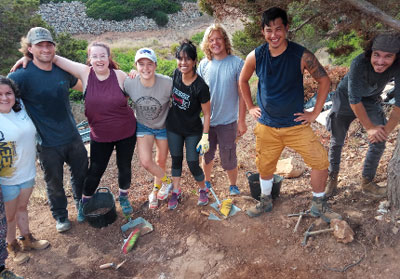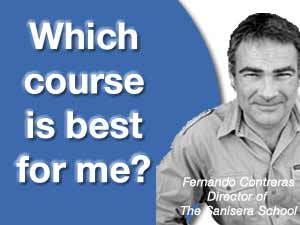Useful Information
Directed at
The training provided in this course and the experience you can acquire can strengthen you if you are thinking about archaeology in a professional level.
If you are contemplating for the first time to be a volunteer in an archaeology field school, this course could be right for you. This program accommodates participants with or without previous experience.
You can learn from the beginning excavation techniques and methodology. During the excavation you will find archaeological remains from the classical period including Roman pottery, amphorae, glass, etc. that you will learn how to identify in the laboratory.
The comprehensive experience that you will gain in this course will help you to decide if you want to pursue archaeology in university or as a profession.
Previous knowledge or experience in archaeology or computer systems is not required.
Field School life & language
The fieldwork focuses on Classical archaeology, and specifically on Roman archaeology.
On a normal working day at the Field School the staff members pick up the students from the residence with the vans to take them to the North of the island to get to the beautiful port of Sanitja, where the Roman city of Sanisera is located. Once there, students devote 4 hours to fieldwork, where they learn proper excavation techniques to improve their skills, while they dig in different buildings in an area of the city very close to the sea.
During fieldwork students recover the materials located in the rooms and other contexts, including tons of Roman ceramics such as amphorae and fine wares, glass wares, faunal remains and metal pieces such as adornments, tools and coins.
After fieldwork we go to the Field School center, where students have a sandwich break to get some energy back! Our center holds the laboratories, where students work with the Roman pottery found on site. The main aim is to wash, label, classify and prepare the materials' inventories. Also students are given lectures on Roman pottery typologies (both for amphorae and fine wares), History of the site, archaeological practice and methodology and Classical History in the Western Mediterranean.
Digging at the Roman city of Sanisera is a first-hand experience to get an insight on the Classical world in a Mediterranean island.
It runs 7 hours a day, and is divided between excavation, lab work, exercises and lectures. For every seven course days, there are two days off.
The course is taught in English.
Certificates
At the end of the Field Program, students will receive a certificate of participation stating the hours and activities of the course.
Participants that perform exceedingly well in the course may receive a letter of recommendation from our organization upon request.






